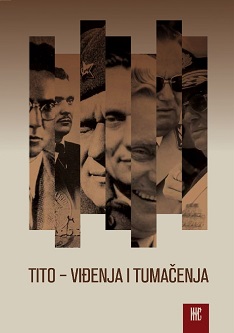Jugoslovenstvo Josipa Broza Tita: kontinuitet ili diskontinuitet?
Tito's Yugoslavism: Continuity or Discontinuity?
Author(s): Jovo Bakić
Subject(s): Governance, Political history, Government/Political systems, Politics and society, History of Communism, Sociology of Politics
Published by: Institut za noviju istoriju Srbije
Keywords: Tito; Yugoslavism; continuity; discontinuity; Serbian variant of Yugoslavism; Croatian variant of Yugoslavism; communist Yugoslavism;
Summary/Abstract: The paper considers Josip Broz Tito’s relation towards Yugoslavism, and perception of his Yugoslavism in Anglo-American and Yugoslav Cold War and post-Cold War historiography. It answers the question whether Tito could have had independent view of Yugoslavism in relation to the Communist Party of Yugoslavia and the League of the Communists of Yugoslavia, which he led continuously for 43 years between 1937 and 1980. Therefore, in context of structural interconnectedness of the authoritarian Party, and after the WWII authoritarian Party and state, and its leader, one has to investigate Tito’s relation towards national question in Kingdom and socialist Yugoslavia. Main hypothesis is that an authoritarian party and its leader cannot hold different views of such an important question as national one is in a multinational political community. In other words, he was able to influence decisively on programmatic documents of the CPY (LCY) and definitions of recognized national categories in the population censuses, and they had to reflect convictions of the leader. However, these documents had remained unchanged between 1937 and 1980 in terms of Yugoslavia as a multinational federation, and the censuses had never had an unambiguously used national label ‘Yugoslav’. That is why rare occasions when Josip Broz delivered speeches in favor of a ‘Yugoslav nation’ between 1948 and 1956 meant that he only tactically used Yugoslavism before foreign and domestic public in order to empower Yugoslav resistance and Western support to it against the Stalin USSR. As danger of the USSR had become weaker after Stalin death, Tito's tactical national Yugoslavism came back to strategic communist minimal Croatian variant of Yugoslavism and Yugoslavia as a multinational, and not national state.
Book: Tito - Viđenja i tumačenja
- Page Range: 43-57
- Page Count: 15
- Publication Year: 2011
- Language: Serbian
- Content File-PDF

